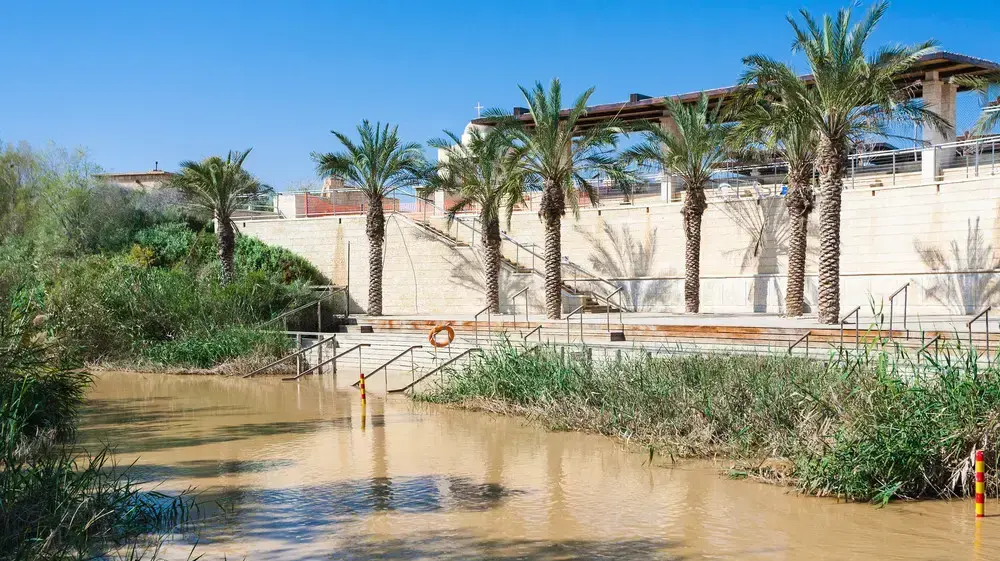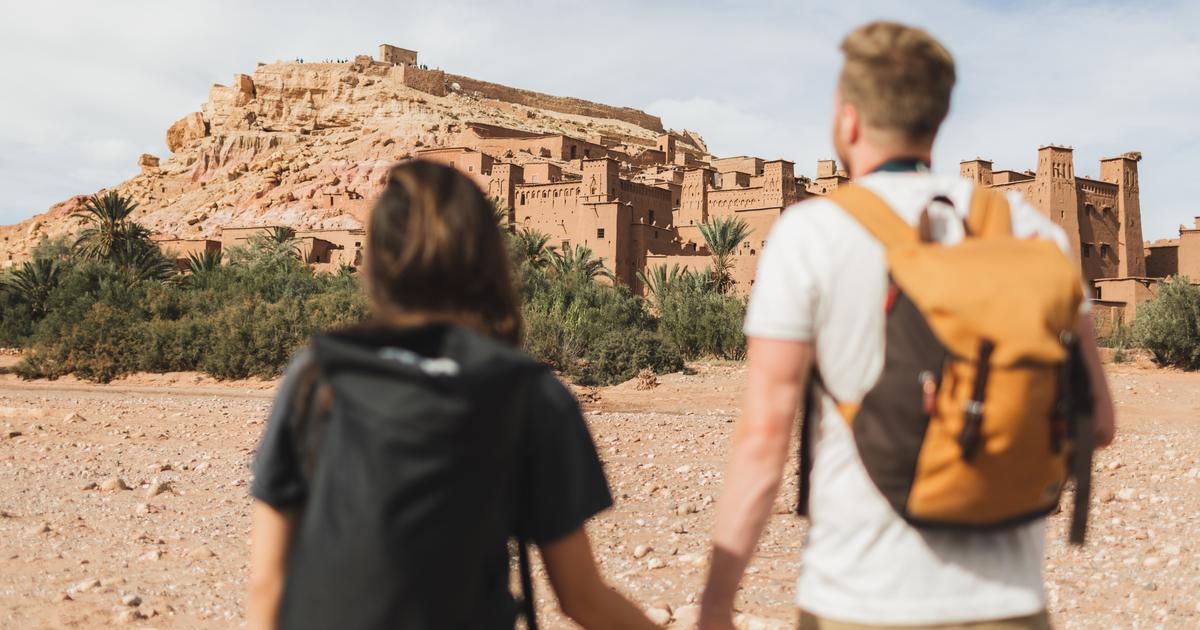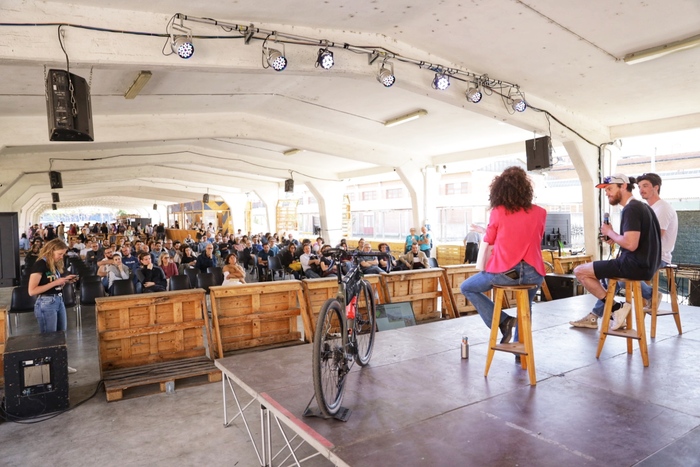The Land of Monasteries in the North of the Dead Sea (Photo: Ziv Reinstein, Dror Sinai)
For hundreds of years, thousands of pilgrims made the journey every year to Beit Evra (also called "Beit Ania beyond the Jordan") - the site where, according to Christian belief, John the Baptist worked and where he baptized Jesus.
Beit Evra is located on the east bank of the Jordan River, in front of the baptismal site "Qasr al-Yehud" within the borders of Israel, which also attracts many pilgrims every year - for the same reason.
The two sites - which are separated by a short distance - are located a few kilometers north of the place where the Jordan River flows into the Dead Sea.
The tourist who walked 6,000 km from Spain to Jerusalem, arrived in the land
of a new land: to the closed monasteries in the "Land of the Monasteries" The "
Epiphany" ceremony at the baptism site in Jordan: a special tour
And if we return to Jordan - there is a chance that the annual number of pilgrims will increase to about a million visitors a year, if a new project is realized that will last about six years and cost about 300 million dollars.
The project is actually the establishment of a "tourist city" adjacent to the baptism site on the Jordanian side, which was even declared a UNESCO World Heritage Site in 2015.
The Skift website reports that about two weeks ago, officials including King Abdullah of Jordan, Christian clergy, architects, museum curators gathered at the site and investors. They arrived to hear about the details of the planned venture. The organizers hope that with the help of souvenir shops and hiking trails, boutique hotels and botanical gardens, the site - which is outside the official boundaries of the baptism site - will eventually attract five times as many annual visitors (today the number stands at approx. 200,000 visitors per year).
A huge tourism project is about to be built.
A house in front of the "Qasr al-Yehud" baptism site (Photo: ShutterStock)
The Qasr al-Yehud baptism site located opposite, in Israel (Photo: ShutterStock)
King Abdullah is praised
The project still needs funding, but the planners are presenting their plans to Christian leaders in the Middle East and beyond, of all denominations and denominations.
In doing so, they hope to attract donors, investors and churches who will also help finance the project.
At the event, King Abdullah was praised by Christian leaders for fostering religious harmony in the country, especially in light of the fact that Christians are a tiny minority (about six percent).
The Jordanian king offers state lands for the benefit of Christian churches and pilgrimage centers.
"This helps Christians in the Middle East to preserve their presence, and their faith," said Maronite Patriarch Bashara Boutros al-Ra'i, Lebanon's leading Christian cleric, who also participated in the ceremony.
At the Beit Evra site, located about 50 km west of Amman, extensive archaeological excavations have been conducted since the mid-90s of the last century. In these excavations, the remains of churches, baptismal pools and caves were uncovered, suggesting that this was a Christian pilgrimage site as early as the fourth century AD In recent years, the unregulated construction of huge buildings and churches by competing churches has changed the Genesis landscape of the area. Project planners say their goal is to preserve the site and its ancient history. According to Kamel Mehdin, the 67-year-old architect who is leading project, action must be taken so that "the holiness and spirituality that prevailed 2,000 years ago are not trampled by any development.
We are not talking about a high-tech landscape."
A pilgrim dips in Jordan.
The project may bring about a million tourists to Jordan (Photo: Reuters)
The celebration of the Feast of the Epiphany at the corresponding baptism site in Jordan (Photo: Omer Miron)
Scenes that have remained unchanged for 2,000 years
Before the ceremony held at the venue, Mahdi guided a number of clerics and potential financiers around the area.
Many of them were deeply impressed by the views.
"The extraordinary resonance of this landscape ... and the significance of this event in human history shakes you to the core," said John Booth, chairman of Britain's National Gallery, who attended the ceremony.
Samir Murad, a former minister and Jordanian businessman who heads The independent non-profit foundation established to oversee the project, said that no state funds would be invested and no land would be sold to foreign investors. His promises were meant to allay fears of over-commercialization of the site. However, quite a few of those present doubted this. Christian researcher Philip Madnat, He said that strict guidelines must be established to ensure transparency and prevent the misuse of funds, especially in light of the fact that this will be the first Christian site in the kingdom designed to generate funds. "This is an attempt to usurp the religious spirit.
It is unprecedented to have such a site, holy to Christians, used for this purpose in Jordan,"
On top of that, there are those who fear that over-development of the future site will damage the wild habitat that remains largely similar to its appearance from biblical times.
In this area, camels and sheep graze in a landscape dotted with ash trees, which appear to be scenes that have remained unchanged for 2,000 years.
A number of clerics claim that this is how the area should remain in the future, due to the sanctity of the site.
But for the leaders of other local churches - and for Jordan itself - pilgrims from all over the world will bring with them much-needed income, in a country where tourism makes up 20% of the local economy.
In addition, the World Bank believes that the resumption of tourism to Jordan after the Corona epidemic will help increase the country's economic recovery from the depression it has experienced in recent years.
"This will lead to prosperity, when tourists who come to buy souvenirs and receive services will help the local community and the country in general," said Father Ibrahim Dabur, the general secretary of the Christian Leaders' Assembly of Jordan, a body representing all denominations.
tourism
news
Tags
Jordan
Qasr al-Yehud
Jordan







/cloudfront-eu-central-1.images.arcpublishing.com/prisa/NN4AILLSO7NHLN4KUPNBMN6DU4.jpg)
